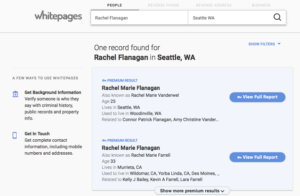Planning This Year’s Family Reunion? Easy Tips to Stay Sane and Create an Event Everyone Will Remember
Written By Kathryn Frazer
Summer is only a few short months away and for many of us that means it’s time for a family reunion! Reunions are a great opportunity to connect with seldom-seen family members, meet new ones, and celebrate your family’s heritage.
But if you’re the person put in charge of organizing the festivities, it can feel a little bit like herding cats – overwhelming, exhausting and potentially painful!
Below are some quick tips to help make the planning process less stressful and make it easier for family members to stay in touch after the reunion:
Mark your calendar, early! Generally, it makes sense to set the date approximately six months to a year in advance for a family reunion. That said, if most of the fam is relatively local – say, an hour or two’s drive away – it’s easier to be more spontaneous and opt for a long weekend somewhere that’s convenient for everyone. Three-day holiday weekends are often a good idea, as are summer weekends, when working hours are often can be relaxed.

A survey from GroupTravel.org found that more than 57 percent of family reunions have between 50 and 149 attendees. With these large numbers, it may make sense to create a family reunion website so that everyone can access information and can take part in the planning process together. HowStuffWorks has a great tutorial available here for how to set up a website, including how to create a family blog, upload and store photo albums, and offer polls on reunion activities and games for family members to vote on.
Build out that mailing list. Determine the size of your reunion – start with your immediate family and then branch out to the cousins, second cousins and everyone that falls under that umbrella. After getting a sense of who will be invited, it’s time dig out your address book and see what kind of information is incomplete or missing.
If you have a really large family it can sometimes be difficult to remember who all is associated with whom. That’s okay! If you can’t remember your cousin’s new spouse’s name or your mother-in-law’s parents’ names, there are easy ways online to track down that information. Online tools like Whitepages can help you search for family members’ contact info such as current addresses, phone numbers and more.
After the invite list is determined and your mailing list is shaping up, it’s a good idea to create a family phone tree and email list and enlist a member of each nuclear family to help with outreach to their respective family members. This will help ease the burden on you as you try to plan out the rest of the reunion.
Get professional help. While it’s easy to cast yourself as the CEO (Chief Event Officer) of the reunion, it’s important to remember that you don’t have to do everything yourself. Consider hiring a caterer to
manage some of the cooking for the event, or just a few individuals that could assist with set-up, serving and clean-up after meals.
Another option is to hire a professional photographer or videographer, especially if your family is rarely all in one location.
Save and share contact information. Consider a fun way to share contact information so that family members can keep in touch after the event. Creating a family address book or photo scrap book (including a phone, email and mailing address list) as a gift makes it easy the next time you want to plan a get-together or just call Aunt Mary for a chat. Having easy access to your family’s contact information means you’re never really out of touch, and it also makes holidays and birthdays a lot easier when sending cards and presents out.
We can’t guarantee that a family reunion will be 100 percent problem-free, but being prepared and gathering important contact information early means that you have more time to be excited, not stressed, about the upcoming event.
About the author Kathryn Frazer is the Events Marketing Manager at Whitepages, an identity verification provider and people search engine.
Whitepages was founded in 1997, and helps you contact, research and verify people in your world. More than 30 million people per month use its people search engine to get in touch with extended friends and family, conduct background checks and verify that people are who they say they are.



Thanks for the great article